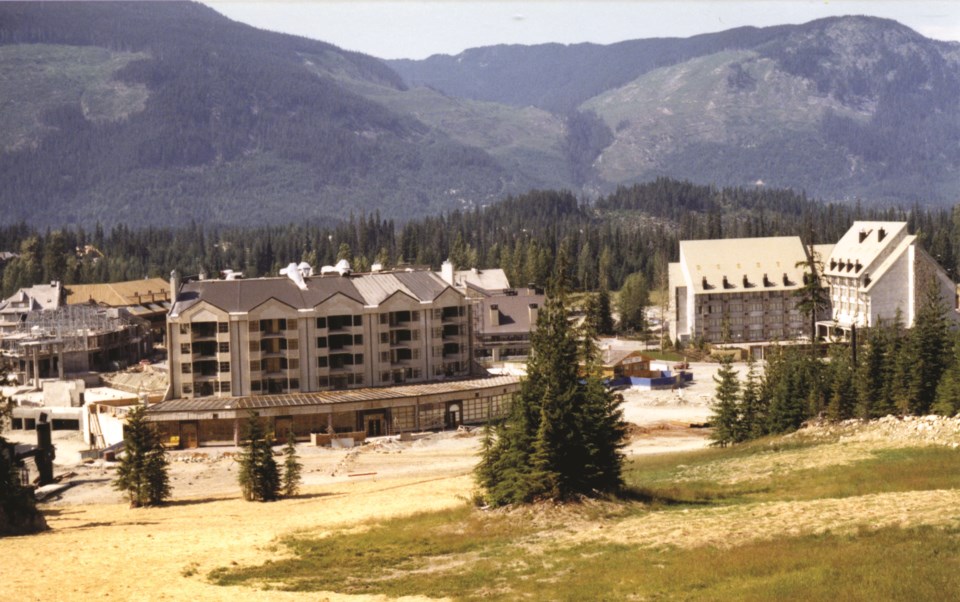When the financial crisis of the 1980s hit Whistler, even the prime real estate at the base of both mountains did not make it through unscathed. Dick Gibbons and Jack Cram were partners in Fitzsimmons Condominiums and Stoney’s Restaurant, where La Bocca is today. With a completed Whistler development under their belts, they were approached by Whistler Village Land Company (WVLC) about potentially purchasing the unfinished project where the Carleton Lodge now stands.
At the time, the foundation was partially complete and it was anticipated that this building would be a day lodge and gateway for both Whistler and Blackcomb Mountains. However, WVLC’s finances were dire, and there was not enough money to finish the project. Dick recalled a conversation with Neil Griggs, president of the WVLC. “I don’t want to exaggerate this,” he said. “He literally begged us to finish the Carleton Lodge. I seem to recall he had tears in his eyes.”
Together with additional partners, they negotiated a deal wherein they agreed to finish the project on the condition that if they were unable to sell the 32 condominium units for a certain price, the development permit charges would be refunded. Throughout the build, the architect, building contractor, and many partners felt the financial strain. By the end of the project, Dick Gibbons and Ken Mahon were the only two left to finance and run the show.
When the Carleton Lodge was finally completed in November 1982, few residential units sold and Gibbons ended up running The Longhorn because nobody else would buy it. The unsold residential units were transferred to the people involved in the development according to their investments, and development permit charges were refunded as initially agreed after the court got involved.
“Being a little more risk-averse than some others might be was good for me at times and bad for me at other times, because you miss opportunities,” said Gibbons, when asked how he was able to balance his finances while many in Whistler could not. “I sold quite a bit of real estate when the market had its peak in Vancouver because I thought it pretty much couldn’t go any higher.”
Obviously real estate in Vancouver did eventually increase, but selling these real estate investments left Gibbons in a more comfortable position when interest rates skyrocketed, although it was still a difficult period.
Interest rates had an impact throughout all of the Whistler community. Bruce Watt, who had been a patroller since 1974, decided his family needed better financial security, which led to him getting into real estate, a career he has loved and where you will still find him today. On the other hand, the ugly, unfinished Village led realtor Drew Meredith to make “the mistake of running for mayor in 1986” (his words, not mine) where he served for two terms.
While similar circumstances led to very different decisions, a consistent sentiment when talking to longtime locals about this time is that they would not want to do it again. As it turned out, the village was started just in time, a year later—and it may never have happened.




